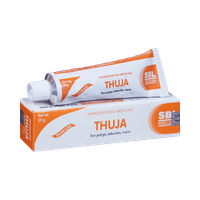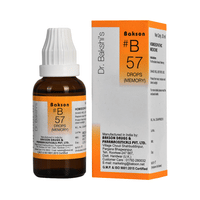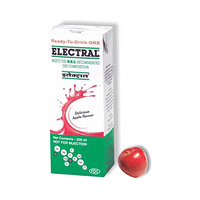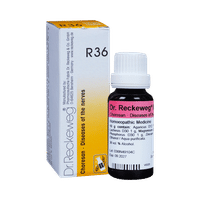Cipcal D3 (Cholecalciferol) Granules For Bone, Joint And Muscle Health
(1 gm Granules in sachet)
Rs. 24.60
Rs. 35.67
31% off
Rs. 24.60
Rs. 35.67
31% off
Cipcal D3 (Cholecalciferol) Granules For Bone, Joint And Muscle Health
(1 gm Granules in sachet)
Available in other variants
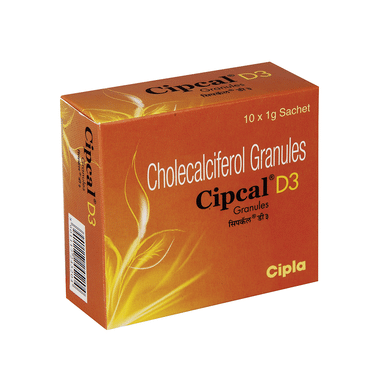
Product Details
Cipcal D3 (Cholecalciferol) Granules for Bone, Joint and Muscle Health
Cipcal D3 Granules is a nutritional supplement that helps in the proper growth and development of bones and keeps the bones and joints healthy. The tablet also increases the absorption of calcium from the intestine. Vitamin D3 is also Known to help maintain adequate levels of two minerals essential for bone health, calcium and phosphorus. It also enables the body to preserve bone health.
Key Ingredients:
Cholecalciferol (Vitamin D3)
Key Benefits:
Good To Know:
Vitamin D3 supplements may interact with some medications. For example, corticosteroids can reduce calcium absorption, which results in impaired Vitamin D metabolism. So, inform the doctor about the medications you are taking.
Concerns It Can Help With:
["Weak bones", "Difficulty in movement", "Joint pain"]
Directions For Use:
Safety Information:
Quick Tips:
["This supplement should not be taken on an empty stomach or between meals. To ensure optimum absorption, take these supplements as directed."]
Faqs:
Cipcal D3 Granules is a nutritional supplement that helps in the proper growth and development of bones and keeps the bones and joints healthy. The tablet also increases the absorption of calcium from the intestine. Vitamin D3 is also Known to help maintain adequate levels of two minerals essential for bone health, calcium and phosphorus. It also enables the body to preserve bone health.
Key Ingredients:
Cholecalciferol (Vitamin D3)
Key Benefits:
- Improves Vitamin D3 levels in the body caused by inadequate absorption of Vitamin D3 by the digestive tract; Assists in building and keeping the bones & teeth strong; Improves bone density and alleviates bone and back pain; Helps to maintain bone function and mitigate pain in the legs, ribs, and joints; Helps improve muscle pain caused due to lack of Vitamin D3 in the body; Aids in the regulation of several neurological and metabolic pathways by acting on Vitamin D receptors in the brain tissue
Good To Know:
Vitamin D3 supplements may interact with some medications. For example, corticosteroids can reduce calcium absorption, which results in impaired Vitamin D metabolism. So, inform the doctor about the medications you are taking.
Concerns It Can Help With:
["Weak bones", "Difficulty in movement", "Joint pain"]
Directions For Use:
- ¼ to 1 sachet with milk or as directed by the physician.
Safety Information:
- Read the label carefully before use
- Store protected from light and moisture at a temperature not exceeding 30°C
- Keep out of reach of children
Quick Tips:
["This supplement should not be taken on an empty stomach or between meals. To ensure optimum absorption, take these supplements as directed."]
Faqs:
- What happens if Vitamin D3 levels are low? Low Vitamin D levels can affect bone health and muscle function.













